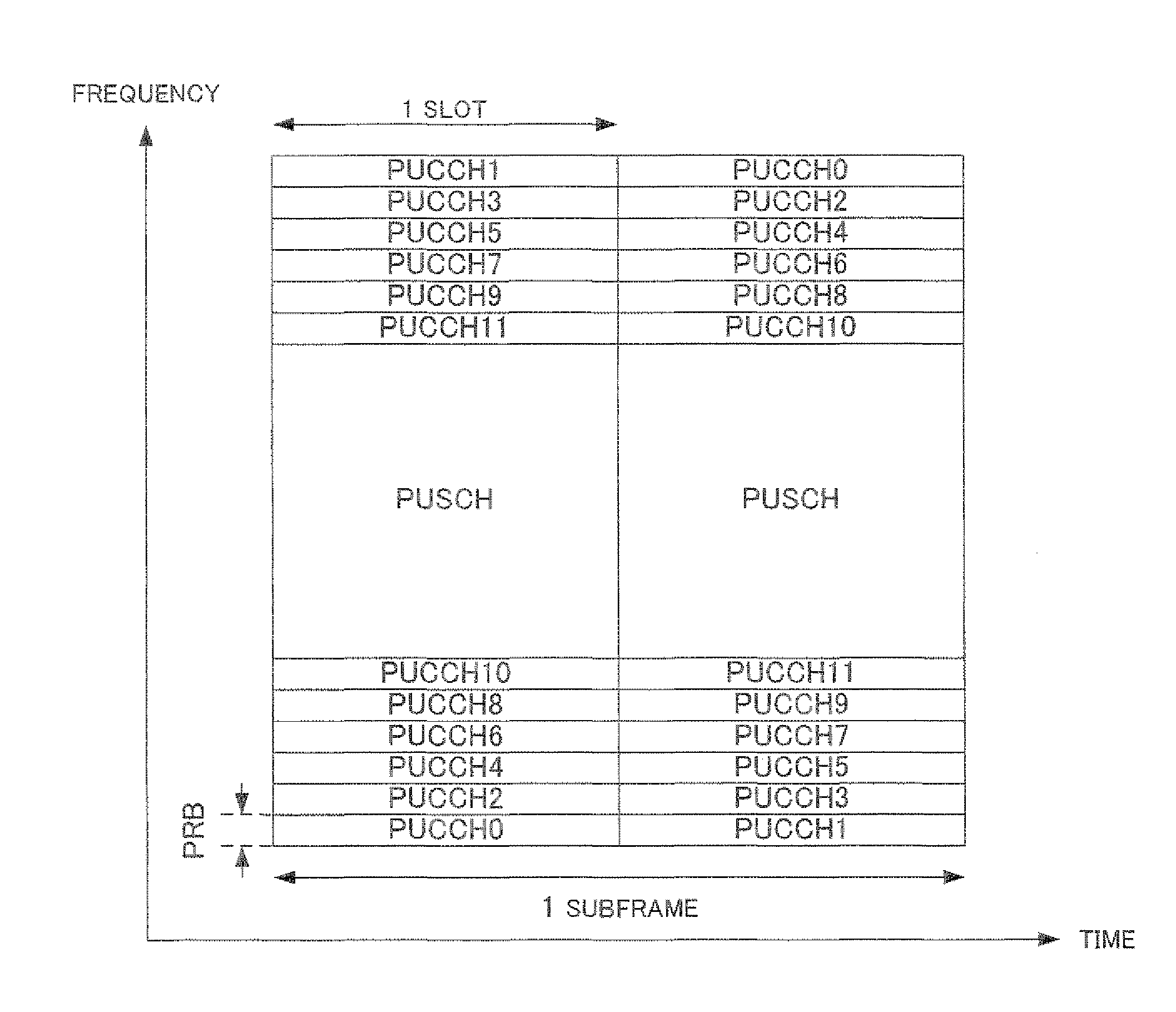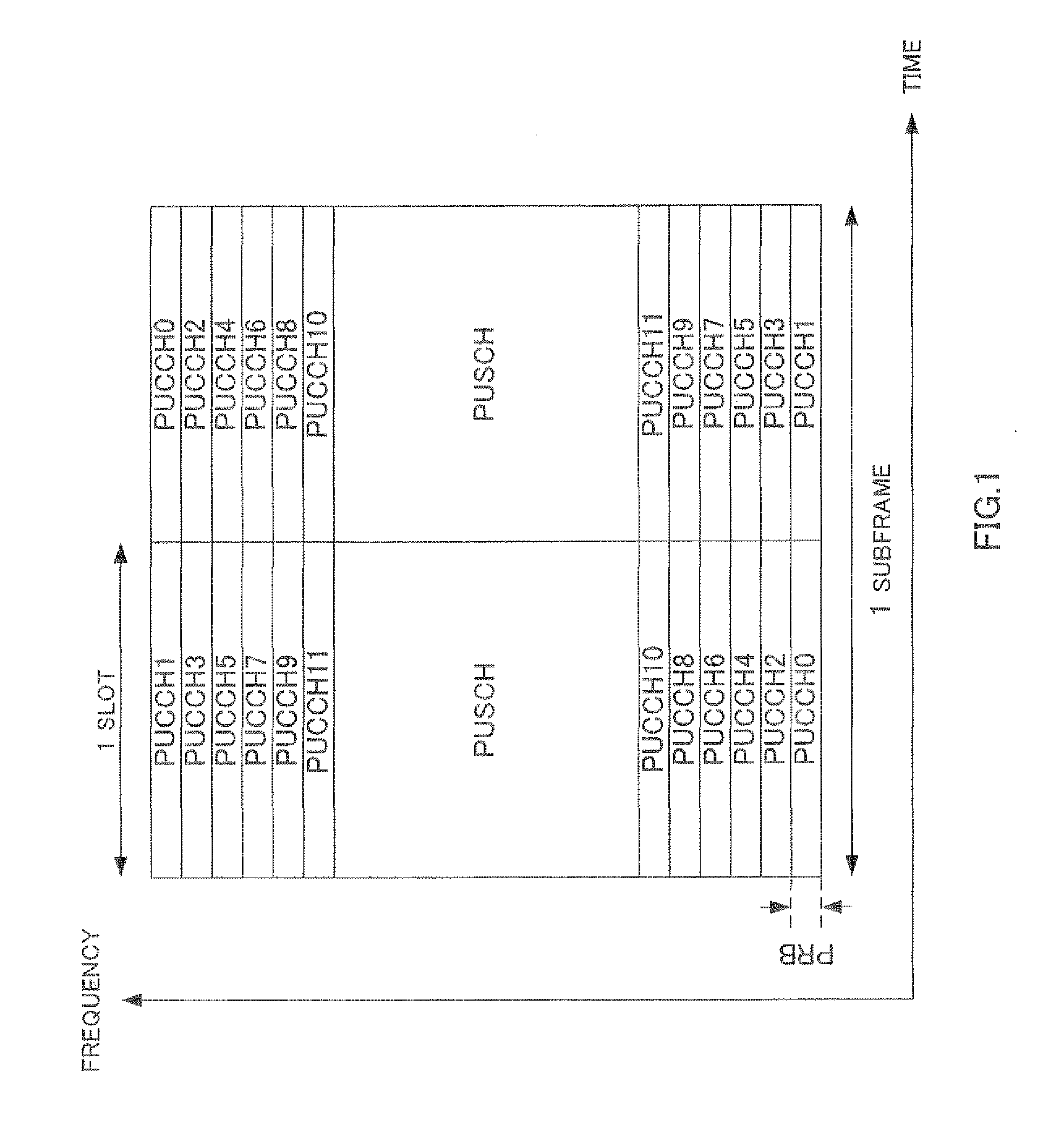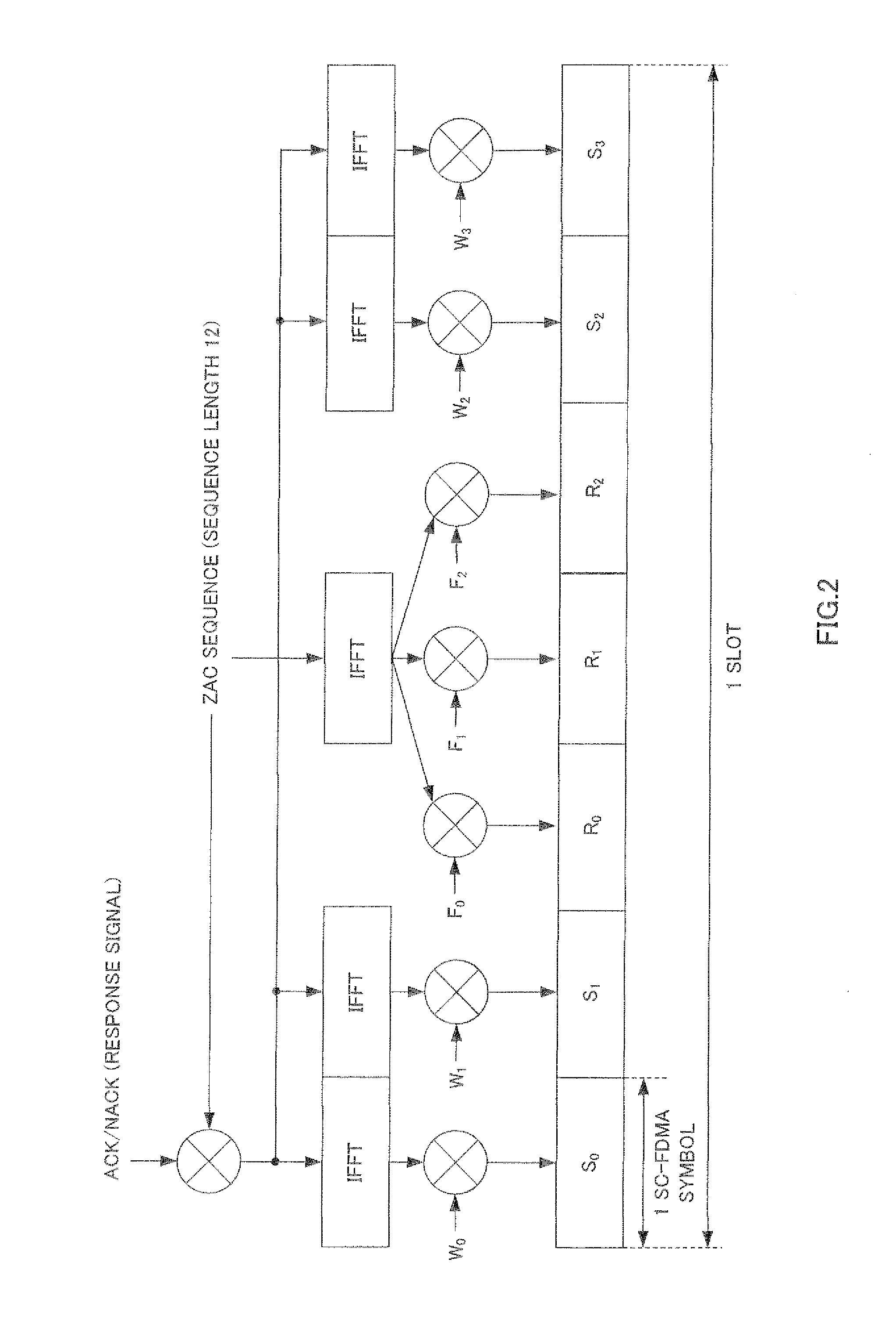Wireless communication terminal apparatus, wireless communication base station apparatus and signal spreading method
a technology wireless communication terminal, which is applied in the field of wireless radio communication base station apparatus, and response signal spreading method, can solve the problems of severe interference from other cells, and achieve the effect of increasing the overhead of uplink control channel and comp communication
- Summary
- Abstract
- Description
- Claims
- Application Information
AI Technical Summary
Benefits of technology
Problems solved by technology
Method used
Image
Examples
embodiment 1
[0049]FIG. 9 shows a configuration of base station 100 according to the present embodiment, and FIG. 10 shows a configuration of terminal 200 according to the present embodiment.
[0050]Here, to avoid complicated explanation, FIG. 9 shows only components pertaining to a transmission of downlink data and a reception in an uplink of the response signal associated with the downlink data, to which the present invention is closely related, and illustration and description of parts or components pertaining to uplink data reception are omitted. In the same way, FIG. 10 shows only components pertaining to a reception of downlink data and a transmission in an uplink of the response signal associated with the downlink data, to which the present invention is closely related, and illustration and description of parts or components pertaining to uplink data reception are omitted.
[0051]Then, in the following explanation, a case will be explained where a ZAC sequence is used for the first spreading ...
embodiment 2
[0110]A case has been described with embodiment 1 where multiple base stations receive response signals in CoMP reception. By contrast with this, a case will be described with the present embodiment where a plurality of base stations join the same CoMP group, transmit in CoMP transmission downlink data (a reference signal) to a terminal, and receive in CoMP reception a CQI signal shows the quality of a downlink measured using the downlink data (a reference signal).
[0111]The detail will be described in the following. In the following description, a plurality of base stations join the same CoMP group transmit a reference signal and downlink data in. CoMP transmission. Thus, reference signals from a plurality of base stations are code-multiplexed and received at a terminal. A base station reports to a terminal in advance information showing a resource (for example, PRB) to be used to transmit a CQI signal.
[0112]A configuration of base station 300 according to the present embodiment is ...
embodiment 3
[0126]Assuming that slot synchronization is established between multiple base stations joining the same CoMP group cases have been described with embodiment 1 and embodiment 2 where slot numbers match between all the base stations joining the same CoMP group. By contrast with this, a case where slot synchronization is not established between multiple base stations joining the same CoMP group—that is, a case where slot numbers do not match between all the base stations joining the same CoMP group—will be described with the present embodiment.
[0127]Here, a hopping pattern of a control signal (a response signal or a CQI signal) is defined by cyclic shifting for each slot a resource arrangement of a control channel (PUCCH) for a control signal on a cyclic shift axis. Then, a base station and a terminal according to the present embodiment adjust a hopping pattern showing correspondence between a resource arrangement and slot numbers of multiple control channels on a cyclic shift axis, us...
PUM
 Login to View More
Login to View More Abstract
Description
Claims
Application Information
 Login to View More
Login to View More - R&D
- Intellectual Property
- Life Sciences
- Materials
- Tech Scout
- Unparalleled Data Quality
- Higher Quality Content
- 60% Fewer Hallucinations
Browse by: Latest US Patents, China's latest patents, Technical Efficacy Thesaurus, Application Domain, Technology Topic, Popular Technical Reports.
© 2025 PatSnap. All rights reserved.Legal|Privacy policy|Modern Slavery Act Transparency Statement|Sitemap|About US| Contact US: help@patsnap.com



